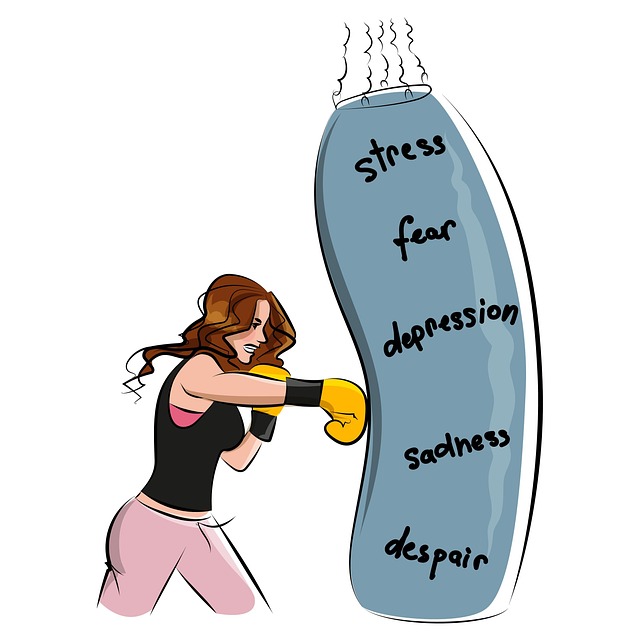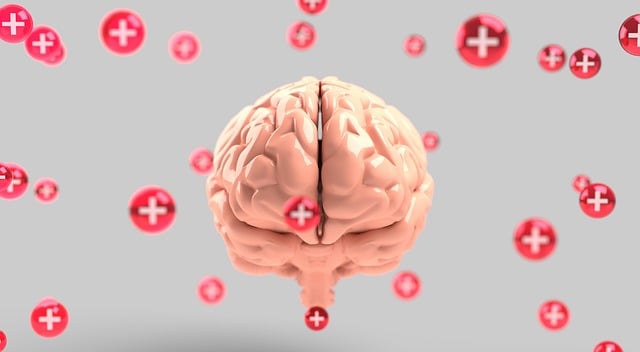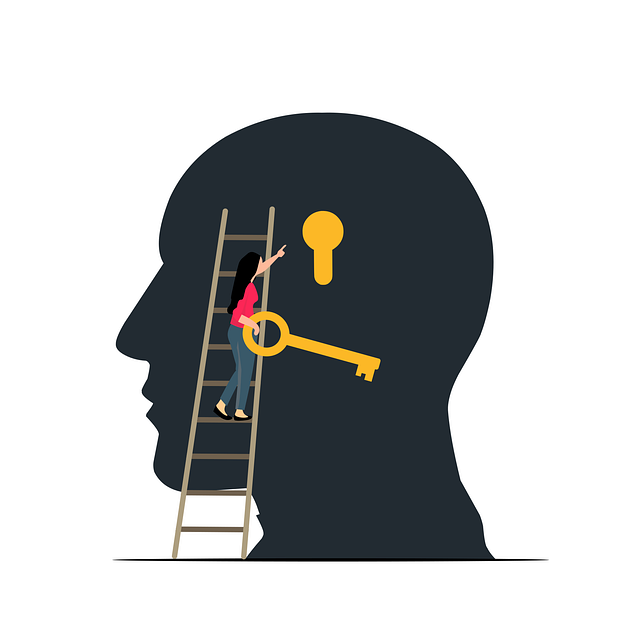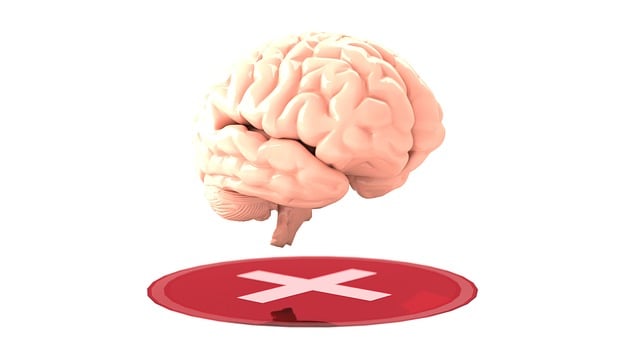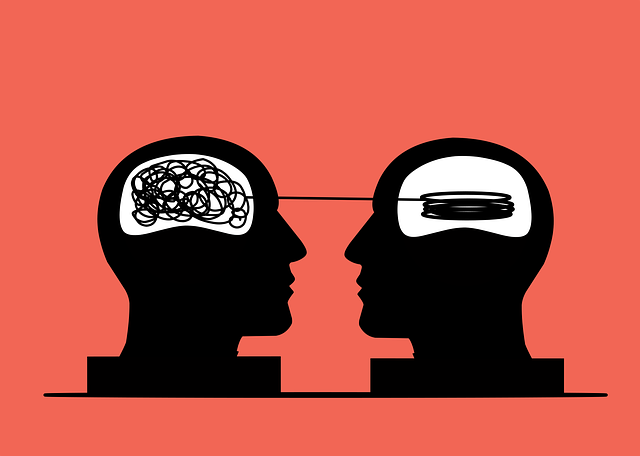Anxiety disorders, stemming from stress and worry, impact daily life with symptoms like persistent worry, fatigue, and sleep issues. Types include Generalized Anxiety Disorder, Panic Disorder, Social Anxiety Disorder, and Post-Traumatic Stress Disorder. Effective treatments like Cognitive Behavioral Therapy (CBT) focus on changing negative thought patterns and behaviors, improving self-care and emotional intelligence. Mindfulness techniques, such as deep breathing and guided meditation, aid in managing anxiety symptoms. Lifestyle changes, including regular exercise, balanced diet, and quality sleep, are crucial for holistic mental health improvement through Broomfield Adjustment Disorder Therapy.
Anxiety is a prevalent condition affecting millions worldwide, with various types such as generalized anxiety disorder and panic attacks. This article guides you through effective management techniques for anxiety disorders. We explore cognitive-behavioral therapy (CBT), a proven method for treating conditions like Broomfield adjustment disorder. Additionally, we delve into mindfulness practices, lifestyle changes, and expert strategies for exercise, diet, and sleep to promote mental well-being. Understanding these techniques can empower individuals to take control of their anxiety and live fuller lives.
- Understanding Anxiety Disorders: Recognizing Symptoms and Types
- Cognitive-Behavioral Therapy (CBT): A Powerful Tool for Anxiety Management
- Mindfulness and Relaxation Techniques to Calm the Mind
- Lifestyle Changes for Better Mental Health: Exercise, Diet, and Sleep Strategies
Understanding Anxiety Disorders: Recognizing Symptoms and Types

Anxiety is a normal human response to stress and challenging situations, but when it becomes excessive and persistent, it can interfere with daily life. Understanding anxiety disorders is the first step in managing them effectively. Symptoms may include persistent worry, restlessness, fatigue, irritability, difficulty concentrating, muscle tension, and sleep disturbances. These symptoms can vary widely from person to person, making diagnosis complex.
There are several types of anxiety disorders, each with its unique characteristics. Generalized Anxiety Disorder (GAD) is characterized by excessive and uncontrollable worry about various aspects of life. Panic Disorder involves recurrent and unexpected panic attacks, often accompanied by fear of future episodes. Social Anxiety Disorder (SAD) centers on intense fear and avoidance of social situations due to concerns about embarrassment or judgment. Post-Traumatic Stress Disorder (PTSD) can develop after traumatic events, leading to flashbacks, nightmares, and heightened arousal. Broomfield Adjustment Disorder Therapy, along with techniques like confidence boosting through cognitive behavioral therapy and cultivating positive thinking, can be instrumental in managing these diverse conditions, often enhanced by cultural sensitivity in mental healthcare practice.
Cognitive-Behavioral Therapy (CBT): A Powerful Tool for Anxiety Management

Cognitive-Behavioral Therapy (CBT) is a highly effective tool for managing anxiety disorders, including Broomfield Adjustment Disorder. This form of therapy focuses on identifying and changing negative thought patterns and behaviors that contribute to anxiety. By challenging distorted thoughts and learning new coping strategies, individuals can gain a greater sense of control over their anxiety and improve their overall well-being.
CBT empowers clients to develop self-care practices that enhance emotional intelligence, which is crucial for managing anxiety in the long term. Through CBT, individuals learn to recognize triggers, understand the connection between thoughts, feelings, and behaviors, and employ relaxation techniques and problem-solving skills to navigate anxious situations effectively. This evidence-based approach has been shown to be highly successful in treating various anxiety disorders, making it a valuable resource for those seeking to overcome their anxiety and lead more fulfilling lives.
Mindfulness and Relaxation Techniques to Calm the Mind

Mindfulness and relaxation techniques are powerful tools to help manage anxiety and promote mental wellness. By focusing on the present moment and cultivating a sense of calm, individuals can navigate through overwhelming thoughts and feelings associated with anxiety disorders, such as Broomfield Adjustment Disorder. Simple practices like deep breathing exercises and guided meditation encourage a state of relaxation, allowing the mind and body to unwind.
Incorporating these techniques into daily routines supports emotional well-being promotion techniques. They enhance one’s ability to stay grounded and reduce reactive behaviors often triggered by anxiety. Moreover, mindfulness can be combined with other therapeutic approaches like Social Skills Training to foster better coping strategies and improve overall mental health.
Lifestyle Changes for Better Mental Health: Exercise, Diet, and Sleep Strategies

In managing anxiety, lifestyle changes often play a pivotal role in enhancing mental well-being. Regular physical activity, such as that recommended by Broomfield Adjustment Disorder Therapy professionals, can significantly reduce symptoms by boosting mood and promoting better sleep. Incorporating self-care practices like exercise into your routine not only improves cardiovascular health but also serves as an effective coping skill development mechanism. A balanced diet is another crucial element; proper nutrition supports emotional healing processes, ensuring your body has the necessary tools to combat stress hormones.
Quality sleep is a critical component of anxiety management. Adequate rest allows the mind and body to recuperate, making it easier to navigate stressful situations. Diet and exercise, alongside consistent sleep patterns, form a holistic approach to mental health, encouraged by professionals in Broomfield Adjustment Disorder Therapy. By prioritizing these lifestyle changes, individuals can develop more robust coping skills and cultivate a sense of resilience, fostering better emotional well-being.
Anxiety management is a holistic process that involves understanding the disorder, utilizing evidence-based tools like CBT, adopting mindfulness practices, and making strategic lifestyle adjustments. By addressing these aspects, individuals can effectively navigate and overcome anxiety disorders, such as Broomfield Adjustment Disorder. Remember, seeking professional help through therapy is a courageous step towards reclaiming mental well-being and fostering a calmer, more balanced life.





